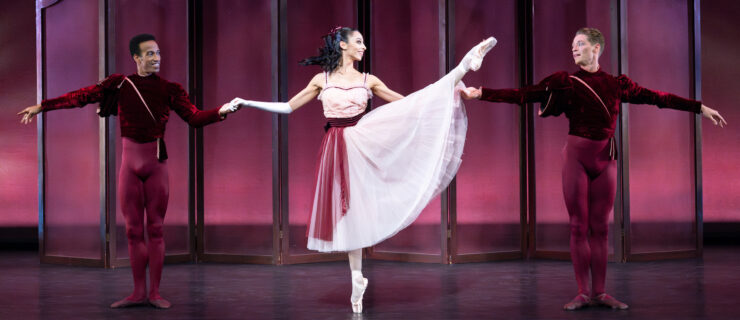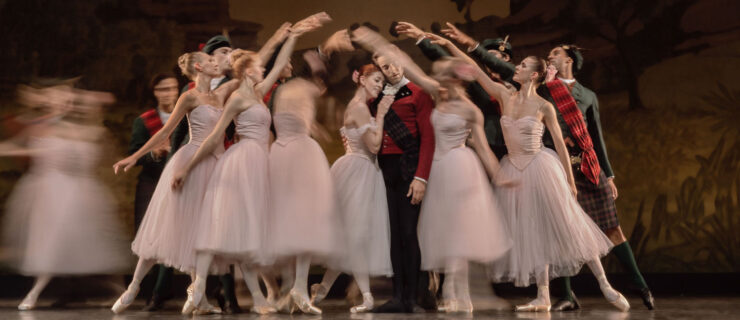Christopher Stowell Leaves OBT
An earthquake in Portland this week sent rumbles throughout the national dance scene. It was centered at the studios of Oregon Ballet Theatre on Wednesday, when artistic director Christopher Stowell announced to the dancers and staff that he was resigning.
It’s no secret that OBT, like so many American ballet companies, has been struggling financially. Three years ago, with Christopher leading the charge, we mobilized national support in the form of Dance United, a gala benefit that raised nearly a million dollars and kept the company alive. But apparently the wolf was still at the door. Ever since 2009, the board and senior management’s new culture of transparency has kept us periodically alerted to financial rough patches and details about different fundraising efforts. Over the past several weeks and months, we’ve been told that there were some huge hurdles ahead—our very own fiscal cliff. Throughout, Christopher’s leadership was a grounding force.
When Christopher took over directorship of OBT in 2003, he brought in a sizeable group of new dancers (myself included), and every year gently but firmly shaped the company a little more towards his ideal. But the board of OBT has concluded that the only way to break the vicious cycle of OBT’s financial distress is to adopt a “new business model,” which at this point they say is a financial model only, not an artistic one, though it’s hard to see how the two are not interdependent. Many cuts have been made over the seasons, but it’s never been enough. Christopher said he doesn’t feel he is “the best candidate” for the new OBT that is going to emerge, and “what that entails is not what interests me as an artist. And it’s important to find someone whose vision aligns with that new direction.” The board has always been publicly supportive of him, though there have certainly been tough debates about artistic integrity versus fiscal austerity.
The dancers of OBT have immense respect and admiration for Christopher. He’s inspirational yet realistic, approachable but authoritative, empathetic but businesslike. His taste in rep made for an endlessly interesting environment to dance in, and his consideration for his dancers’ careers, artistic development and wellbeing was always evident. He created a culture of motivation to be excellent, with ultimate respect for the art form.
Alison Roper has been a dancer with OBT longer than anyone else, having joined under James Canfield in the ’90s. Her words sum up what everyone’s feeling: “Christopher’s departure is an immense loss for our organization and for me personally. He has been an inspiration as a leader, a friend and an artist these past 10 years. Although realistically I’m aware the ballet will continue to thrive and evolve without him, at the moment I’m in a state of mourning.”
Whatever does happen with OBT in the future, it will never be the same again. Christopher Stowell’s tenure here has truly been a golden age, an era of excitement, possibilities, thrilling artistic opportunities for dancers and audiences alike. Any future ballet company that Christopher Stowell touches will be very lucky indeed.





